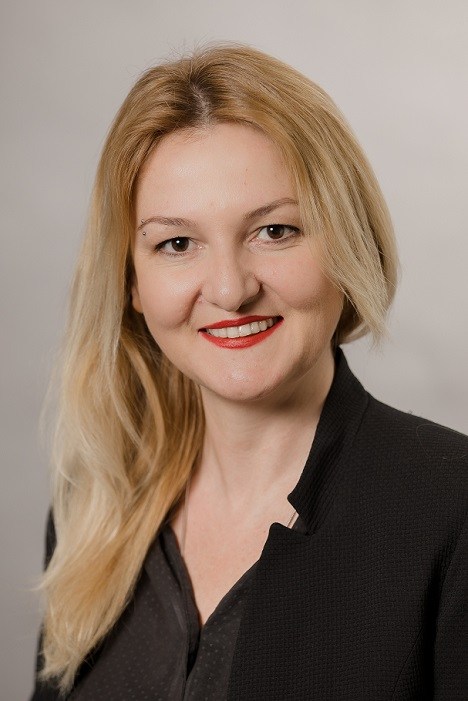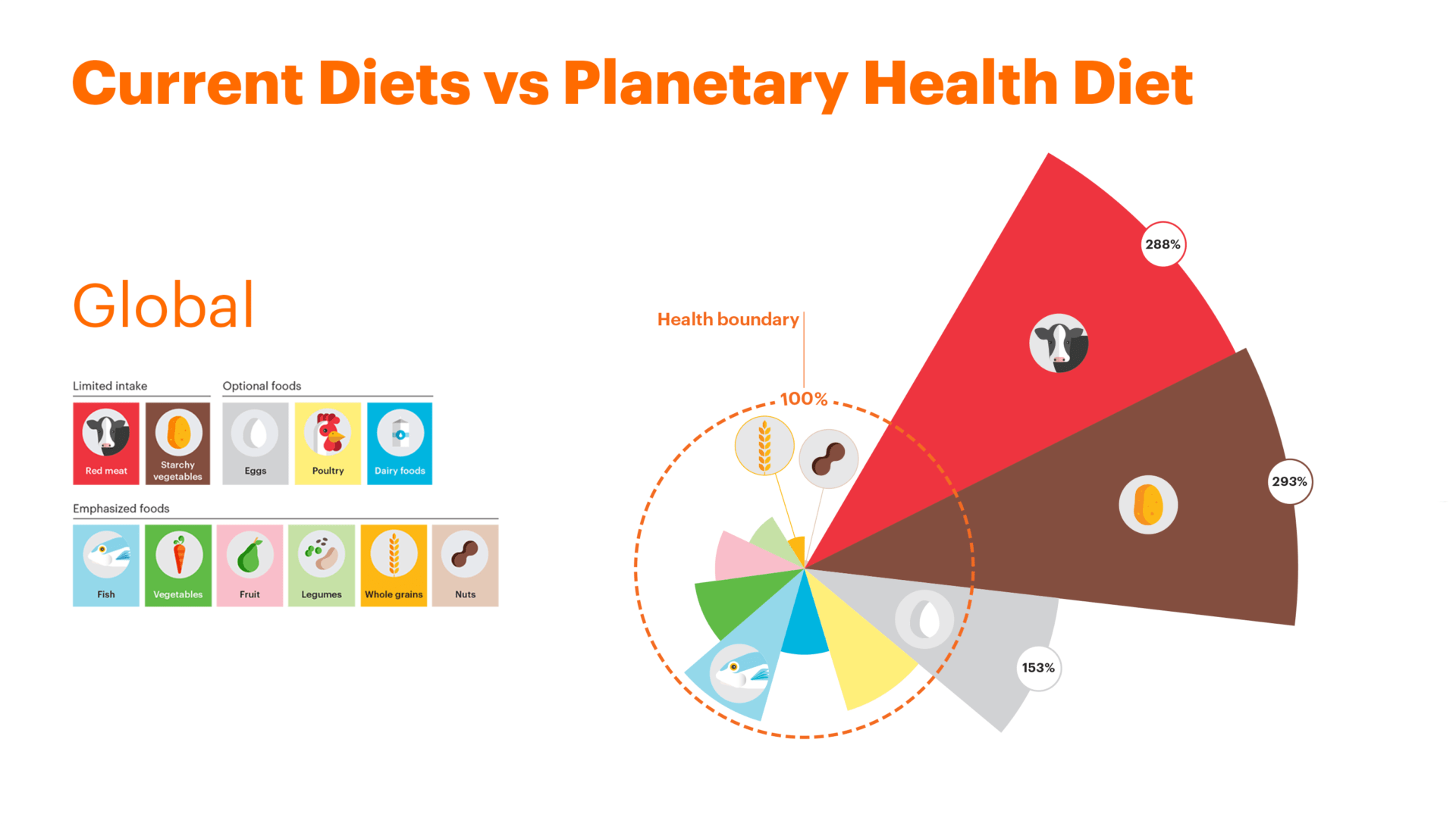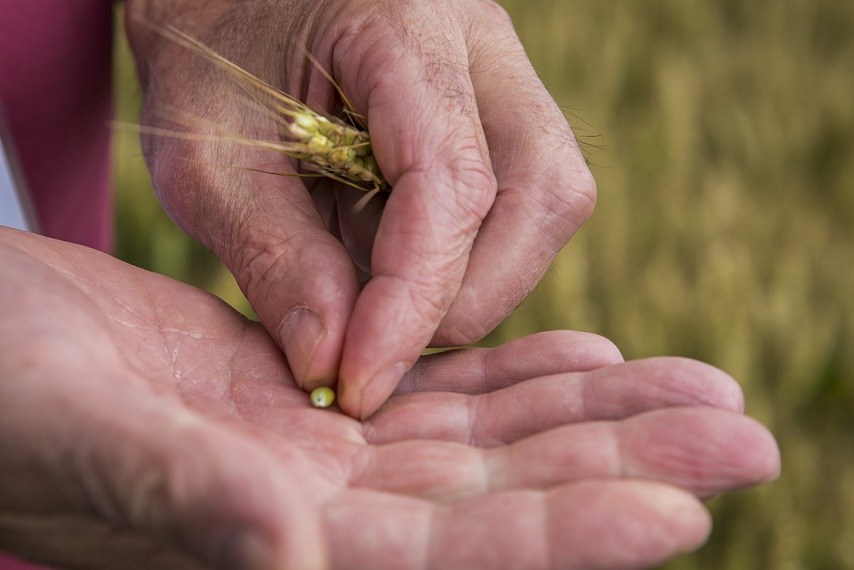Every year, 11 million people across the globe die due to poor diet.
A recent research review in the Lancet suggests that nutrition is a bigger health risk than smoking or high blood pressure. According to a recent Global Burden of Diseases report, low whole grain intake is highlighted as one of the top three leading dietary risk factors responsible for a significant number of avoidable deaths and losses on disability adjusted life years (DALYs). It’s clear what we don’t eat has a greater impact on our health than what we do.
So, what can be done to improve our daily diets? It may not be just a question of cutting out some nutrients such as sugar, sodium, saturated fat, etc., but rather concentrating on eating more nutritious foods.
Following International Whole Grain Day on the 19th of November, we caught up with Ece Nevra Durukan from the Global Nutrition, Regulatory and Scientific Affairs team at Cereal Partners Worldwide – makers of Nestlé Breakfast Cereals – to hear how simple changes to diet can make a world of difference to our health.
Ece, as a dietician, what’s one thing people could do to improve their diet?
The easiest way to improve your diet is really consider what choices you’re making. You need to eat a wide variety of foods to make sure your body is receiving all the nutrients it needs. Make sure you’re eating lots of fruit and vegetables, choosing whole grain foods, and limiting the amount of public health sensitive nutrients.

Ece Nevra Durukan
This could be as simple as swapping white toast in the morning for whole grain bread or wholegrain breakfast cereal with fruit. Governments recommend we each eat around 50g of whole grain a day but estimates show most people eat less than a quarter of that. Children, in particularly, aren’t eating enough wholegrain. This is a worry, as it’s important we teach our children healthy eating habits and offer nutritious meals from an early age.
If we each increase how much whole grain we eat, it could result in a significant reduction of non-communicable diseases such as heart disease, Type 2 diabetes, and cancers by up to nearly 35%. There are few foods that can deliver such a diverse benefit if we eat them regularly as part of a balanced diet.
Why aren’t people eating enough wholegrain? What can be done about it?
There are a number of reasons. In 2017, we conducted a survey of over 16,000 people to try and understand the problem. We found out that awareness around whole grain was incredibly low. People didn’t understand what whole grain was or where they could find it. In fact, 1 in 10 people thought they could find whole grain in bananas! One way of overcoming this barrier is through clearer communication around the benefits of whole grain and where it can be found.
A public private partnership whole grain campaign run in Denmark concentrated on education and new whole grain labelling practices. As a result, whole grain consumption increased from 32g a day to 82g a day. Fifty-three percent of those surveyed after the campaign said they actively looked for whole grain while shopping. Recent figures show Denmark still has one of the highest levels of whole grain consumption in the world.
What role does Cereal Partners Worldwide (CPW) have in helping people eat more whole grain?
As a leading breakfast manufacturer, we’re a major contributor to people’s wellbeing – something we take very seriously. We’ve built our company around making breakfast better and we’ve set ourselves some tough targets in order to do this. Our Promises look at how we make our products, our impact on the environment, and how we can build the communities around us.
Over the last 15 years, we’ve evolved and adjusted our recipes to increase the amount of whole grain in our cereals. We’re very proud of the fact that more than 80% of all our products have whole grain as its number one ingredient – a figure that increases to more than 99% if you look at our children and teen ready to eat breakfast cereals. This is something we’re continuing to work on.
CPW is a very prominent supporter of the Whole Grain Initiative. What is it? Why do you support them?
We know that we can’t hope to change things on our own. The Whole Grain Initiative brings together experts from across the private and public sector with a joint mission of increasing whole grain consumption across the world. The Initiative gathers together evidence and best practice to help governments and policy makers understand the power of whole grain and the benefits it can bring to their populations. We want to work with governments and help them develop policies around whole grain, which, ultimately, will have a positive impact in reducing non-communicable diseases and improve the health status of their citizens.
The Whole Grain Initiative celebrated International Wholegrain Day with a dedicated webinar. What was the theme of the webinar?
The webinar brought together leading organizations (including the Food and Agriculture Organisation of the United Nations), experts and whole grain supporters from over 70 countries to discuss the importance of whole grain on building healthy, sustainable and resilient food systems. Whole grain’s role in a sustainable environment is an interesting one. Based on the Eat-Lancet report, the global average of whole grain intake is far from what is recommended in a planetary health diet.
Recent research from the World Wildlife Fund also suggests that moving to a “planetary diet” (a balanced diet with lots of wholegrains, fruit and vegetables, and less sugar, oils, fats and meat) can reduce wildlife loss by up to 46%, halt deforestation, and reduce food agriculture-based greenhouse gas emissions by at least 30%. The webinar acted as an incubator – gathering together best practice from public-private partnerships around the world – helping the industry to develop new ideas on how to increase whole grain consumption.
What policies can we put in place to increase whole grain consumption?
While there are no easy-wins or quick solutions, there are a couple of things I think governments can look at it in order to help their citizens understand the power of whole grain and encourage them to eat more. Firstly, there needs to be better consistency around dietary guidelines with more of an emphasis on whole grains. Worldwide, more than 100 countries have developed, or are currently developing, food-based dietary guidelines. The recommendations vary significantly and that means consumers find it hard to translate into their daily diet.
Secondly, we know front of pack labels work – they’re an effective way of helping consumers identify healthier foods. Unfortunately, whole grain is rarely included in the algorithms. We’d like to see labels which recognise the importance of whole grain as an important ingredient in a healthy diet - one that has benefits beyond fibre.
Finally, I would call on governments to consider comprehensive education and marketing campaigns on the benefits of whole grain. We know people don’t eat whole grain because they don’t know what it is – it’s time to change that! Let’s make everyone know how much of a superhero whole grain is.

